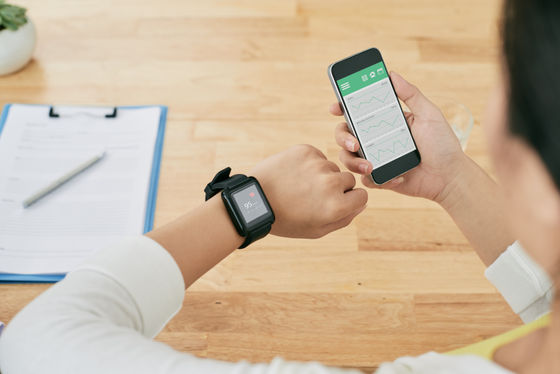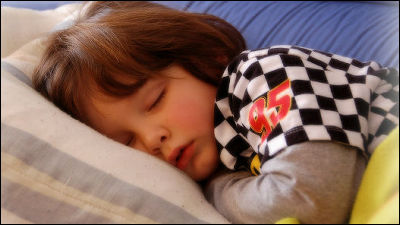It turns out that getting excited after five is a natural physiological phenomenon of humans.

Many people feel groggy when they get out of bed every morning, but feel better in the evening when they're free from work or school. A study that analyzed the relationship between the rhythm of the body's internal clock and mood fluctuations over the course of a day confirmed that people feel the lowest in the early morning hours and the highest in the evening.
Unraveling the interplay of circadian rhythm and sleep deprivation on mood: A Real-World Study on first-year physicians | PLOS Digital Health
The science behind waking up on the wrong side of the bed | University of Michigan News
https://news.umich.edu/the-science-behind-waking-up-on-the-wrong-side-of-the-bed/
The human body has a circadian rhythm that regulates various functions of the body, such as body temperature, metabolism, and the timing of sleep and wakefulness, in a constant cycle. This mechanism, also known as the body clock, has a significant impact on mood and mental health. .
Until now, measuring circadian rhythms required burdensome tests such as rectal temperature measurements and frequent blood sampling, but advances in technology have made it possible to collect data using mobile terminals and wearable devices.

In this study, a joint team from the University of Michigan in the United States and Dartmouth Health, a medical network made up of multiple medical institutions, analyzed 168,311 days worth of Fitbit data collected from 2,602 hospital residents. The we.
Participants were recruited from among iPhone-user residents participating in a study called the Intern Health Study, which targets resident physicians across the United States. Those who decided to participate were given a Fitbit Charge 2 wearable device to wear on their wrist, and participants provided data on their sleep, heart rate, and step count through an app. Participants were also asked to complete a survey once a day at any time, answering the question ``How did you feel today?'' using a number from 1 to 10.

After two years of research, the research team analyzed the relationship between circadian rhythms and mood and found that mood is at its lowest around 5 a.m., and peaks 12 hours later at around 5 p.m. Turns out it's repeating. They also found that the longer the participants were awake, the more pronounced the influence of their body clock on their mood was, and that the longer the participants were awake, the worse their mood was.
'Regardless of whether you're sleep deprived or not, your mood repeats a natural cycle of being lowest in the morning and highest in the evening,' said lead author Benjamin Shapiro, a psychiatrist at Dartmouth Health. In addition to this, lack of sleep also makes you feel more depressed, meaning that someone who wakes up all night until 5 a.m. will feel even more depressed than someone who wakes up at 5 a.m. However, on a typical day, your mood tends to be lower at 5 a.m. than at 5 p.m.'

One of the major points of this research is that smart watches such as Fitbits can be used to detect mood disorders without the need for extensive methods such as blood and saliva collection or laboratory tests that control the brightness of light throughout the day. It showed the possibility of research and circadian rhythm research.
Danny Folger, from the University of Michigan, said: 'This study highlights the important role our body clocks play in determining mood swings, and how wearable technology can help address these factors in mental health issues. 'This represents a new way to explore the world.'
◆Forum now open
A forum related to this article has been set up on the GIGAZINE official Discord server . Anyone can write freely, so please feel free to comment! If you do not have a Discord account, please create one by referring to the article explaining how to create an account!
• Discord | 'What time do you feel best? Morning? Night? Or?' | GIGAZINE
https://discord.com/channels/1037961069903216680/1217766111857082409
Related Posts:
in Science, Posted by log1l_ks






